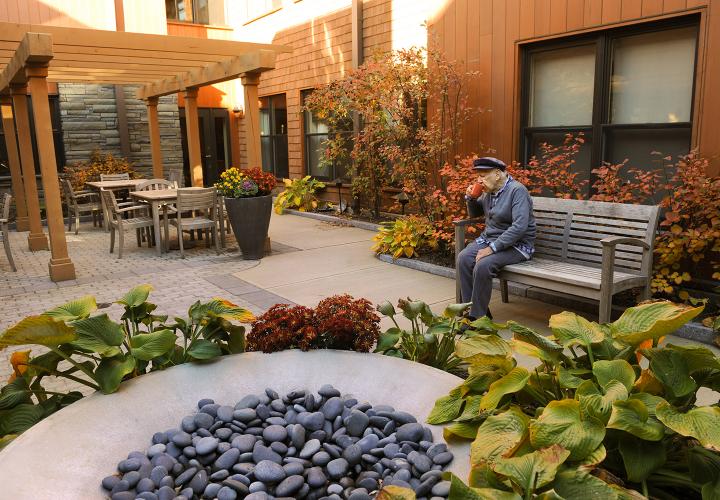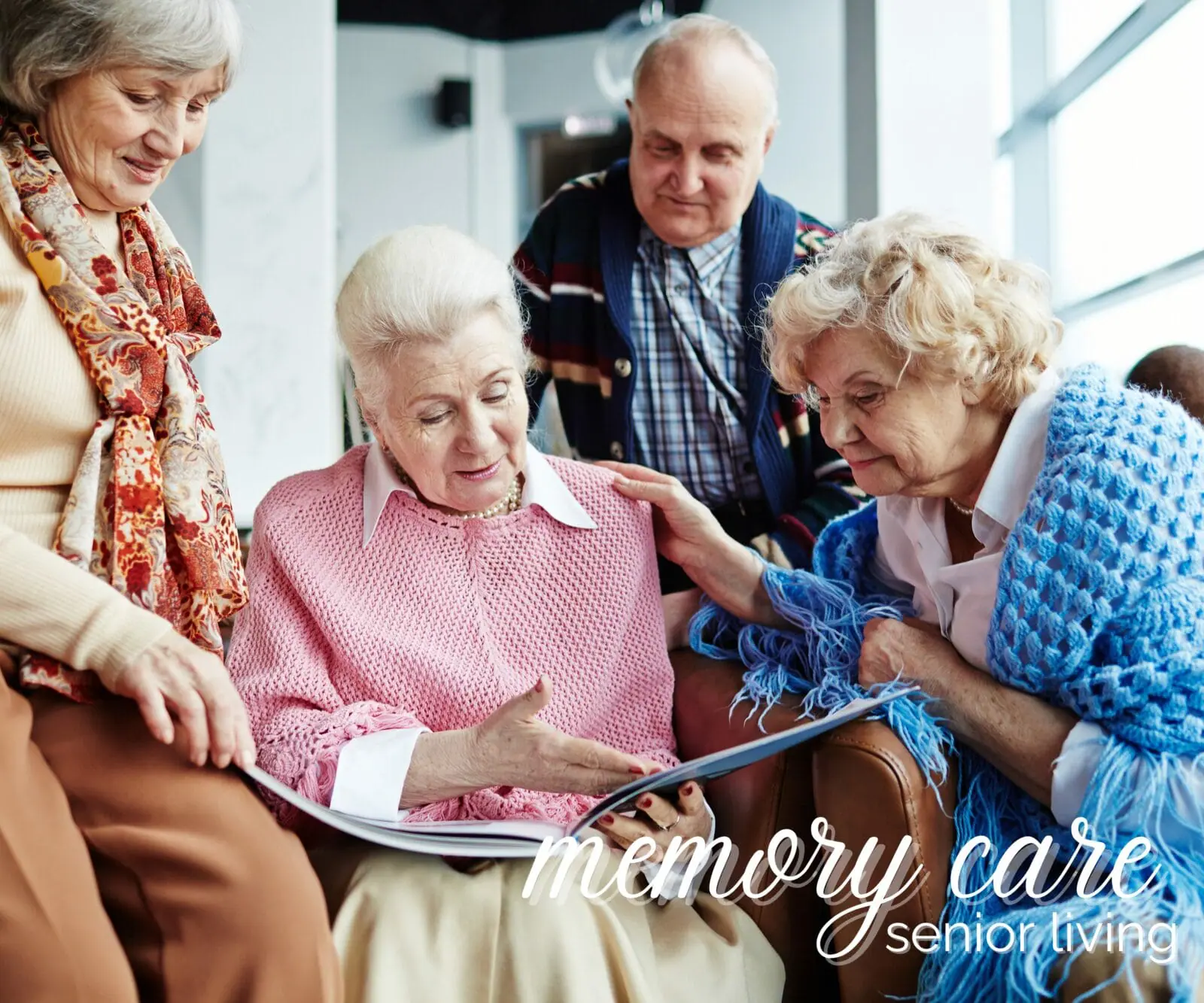Professional and Dedicated Services for Alzheimers Care Charlotte Locals
Professional and Dedicated Services for Alzheimers Care Charlotte Locals
Blog Article
Producing a Safe and Encouraging Setting for Alzheimer's Treatment
The development of a supportive and risk-free atmosphere for people with Alzheimer's is paramount in boosting their lifestyle. This entails not just physical adaptations within the home, such as decreasing risks and including acquainted elements, but likewise the execution of structured regimens and meaningful activities that accommodate their cognitive requirements. Comprehending the emotional and emotional dimensions of care can considerably impact their sense of safety and connection. Checking out these complex methods can reveal important insights into efficient caregiving strategies that might transform the daily experiences of both clients and caretakers.
Recognizing Alzheimer's Needs
Frequently, people with Alzheimer's illness exhibit an array of requirements that require tailored approaches to care. As the condition progresses, cognitive decrease manifests in various methods, influencing memory, reasoning, and even the capacity to carry out day-to-day tasks. Caregivers need to acknowledge these advancing requirements to supply ideal support and ensure a greater top quality of life for those impacted.
One essential aspect of recognizing Alzheimer's needs is identifying the significance of routine and experience. Individuals frequently locate comfort in well-known patterns, which can reduce stress and anxiety and complication. Caretakers need to aim to create structured daily routines that incorporate meaningful activities straightened with the person's rate of interests and capacities.
In addition, efficient interaction is critical. People with Alzheimer's might battle to reveal themselves or comprehend complex language. Caretakers need to employ straightforward, clear language, usage non-verbal hints, and method energetic listening to promote understanding and connection.
Caretakers should urge interaction in neighborhood tasks or family members gatherings, advertising a feeling of belonging and function. Recognizing these varied requirements is necessary for developing a helpful treatment atmosphere.
Creating a Safe Home
Developing a secure home for individuals with Alzheimer's illness is essential to lessening threats and advertising self-reliance. The style of the space need to focus on safety while permitting individual comfort. Initially, eliminate prospective threats such as loose carpets, sharp things, and clutter, which can bring about drops or crashes. Make sure that paths are well-lit and clear, as correct illumination decreases disorientation and improves wheelchair.
Integrating flexible attributes is additionally vital. Mount grab bars in bathrooms and near stairs, and take into consideration utilizing non-slip floor coverings in damp areas. Furthermore, using different colors for floorings and wall surfaces can assist in differentiating areas, assisting to mitigate confusion.
Familiarity is very important for people with Alzheimer's. Customizing the setting with familiar items and pictures can reinforce a sense of belonging and protection - Alzheimers Care Charlotte. It is also helpful to have actually an assigned location for day-to-day activities, such as reading or crafting, which can offer structure to their day
Finally, implementing a protected outside space permits risk-free expedition while linking with nature. By attentively developing the home atmosphere, caregivers can substantially improve the lifestyle for individuals living with Alzheimer's condition.
Enhancing Interaction Abilities

Non-verbal communication, including faces, gestures, and touch, plays a critical duty in communicating empathy and understanding. Maintaining eye get in touch with and a calm behavior can enhance the convenience level of the individual, advertising a feeling of safety.
Additionally, it is essential to exercise active listening. This entails being completely existing, revealing perseverance, and allowing the individual to express themselves without interruption. Repeating may be required; caretakers ought to be prepared to revisit questions or topics, as people with Alzheimer's might have problem with memory recall.
In addition, using visual help or signs, such as pictures or familiar objects, can assist in recognition and involvement. Ultimately, improving communication skills is about constructing trust and developing an atmosphere where people really feel heard, valued, and comprehended, thus enriching their lifestyle.
Urging Social Interaction
Fostering meaningful social communications can substantially enhance the well-being of individuals with Alzheimer's condition. Engaging with others not just assists combat sensations of seclusion but also promotes cognitive feature and psychological health and wellness. Structured social activities, such as group crafts, video games and arts, or songs treatment, create possibilities for citizens to get in touch with peers and caregivers, which can lead to enhanced mood and lowered anxiousness.
Developing an inviting setting that motivates socialization is crucial. This can be achieved by organizing public rooms that promote communication, such as comfortable seating locations or task spaces. Furthermore, integrating acquainted and culturally pertinent tasks can stimulate memories and encourage engagement, enabling individuals with Alzheimer's to really feel more connected to their past experiences.
Furthermore, caretakers need to be educated to acknowledge and advertise social engagement among locals. Simple motions, try this web-site such as starting conversation or facilitating little seminar, can assist individuals really feel valued and included. On a regular basis scheduled social occasions should be consistent yet flexible, suiting differing degrees of capability and interest. By prioritizing social communication, we can considerably enhance the lives of those dealing with Alzheimer's, promoting a sense of community and belonging.
Sustaining Caretaker Health

To support caretakers, companies should supply routine training and instructional resources to enhance their understanding of Alzheimer's disease and caregiving strategies. Giving access to respite care services allows caregivers to take necessary breaks, decreasing anxiety and fatigue - Alzheimers Care Charlotte. In addition, promoting a community via assistance teams can promote psychological sharing and the exchange of sensible suggestions among caregivers, developing a network of shared support
Psychological wellness sources, such as therapy services, can also be crucial in dealing with the psychological toll caregiving can take. By prioritizing caretaker health, we create an even more lasting caregiving environment that not just benefits the caretakers themselves but likewise improves the overall quality of care gotten by people with Alzheimer's. Eventually, sustaining caregivers is a vital component in cultivating a compassionate and efficient treatment pop over to this site setup.
Verdict
In verdict, the production of a encouraging and risk-free atmosphere for individuals with Alzheimer's is essential to enhancing their quality of life. By focusing on safety and security via thoughtful layout, promoting emotional health with acquainted components, and promoting interaction with structured routines, caregivers can substantially influence the overall experience of those influenced by this problem. Moreover, supporting caretaker health is crucial, as it eventually contributes to an extra compassionate and efficient care setting.
Rep might be needed; caretakers ought to be prepared to revisit topics or concerns, as people with Alzheimer's might have a hard time with memory recall.

Report this page